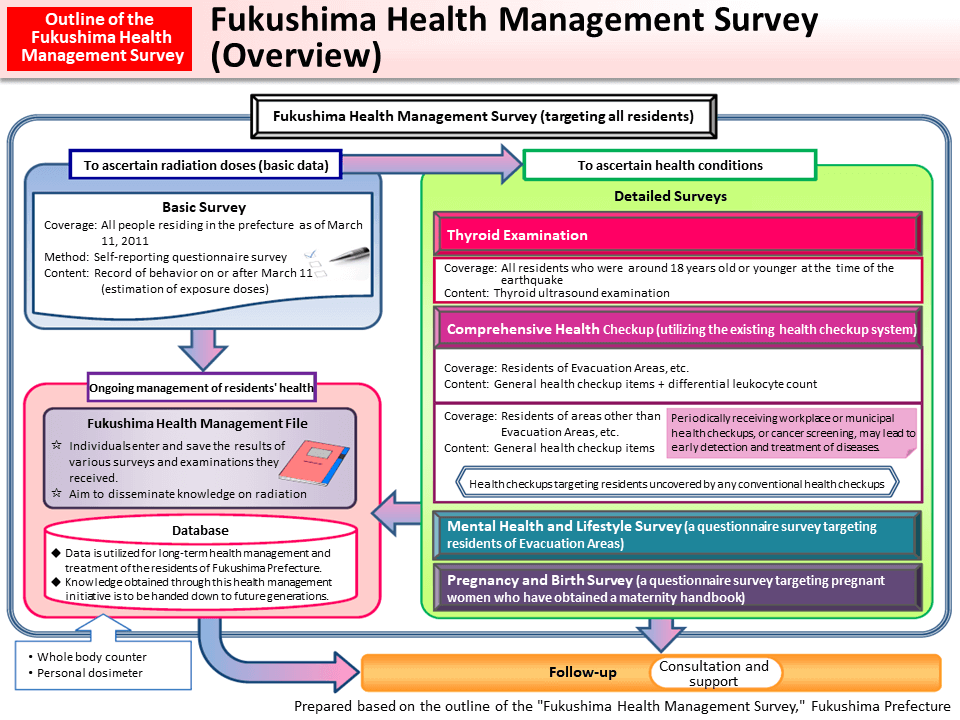Fukushima Health Management Survey (Overview)
The Fukushima Health Management Survey is broadly divided into the Basic Survey and Detailed Surveys.
The Basic Survey was conducted for the purpose of estimating residents' external doses for the four months after the accident at Tokyo Electric Power Company (TEPCO)'s Fukushima Daiichi NPS based on their behavioral records and obtaining data that is to serve as the basis for monitoring and protecting their health into the future.
The Detailed Surveys are to ascertain residents' present health conditions, as follows:
The first is the Thyroid Examination targeting all residents who were around 18 years old or younger as of March 11, 2011. As cases of thyroid cancer increased among children after the Chernobyl accident, this examination is to be repeated periodically for the applicable participants.
The second is the Comprehensive Health Checkup targeting people who used to reside in Evacuation Areas, being conducted with the aim of achieving the prevention, early detection, and treatment of lifestyle-related diseases that may be caused by changes in their living circumstances.
The third is the Mental Health and Lifestyle Survey, which also targets people from Evacuation Areas. This is for offering support to the disaster victims to ease anxiety and emotional trauma caused by the Great East Japan Earthquake and the accident at the NPS.
The fourth is the Pregnancy and Birth Survey targeting pregnant women who have worries over various things including radiation fears in relation to childbirth and child rearing.
Individuals are encouraged to personally keep records of these surveys and examinations in a Fukushima Health Management File, which is delivered to all residents, and utilize the data for their own health management. Additionally, Fukushima Prefecture compiles all data into a centralized database for the long-term utilization of accumulated knowledge.
- Included in this reference material on March 31, 2013
- Updated on December 1, 2017

